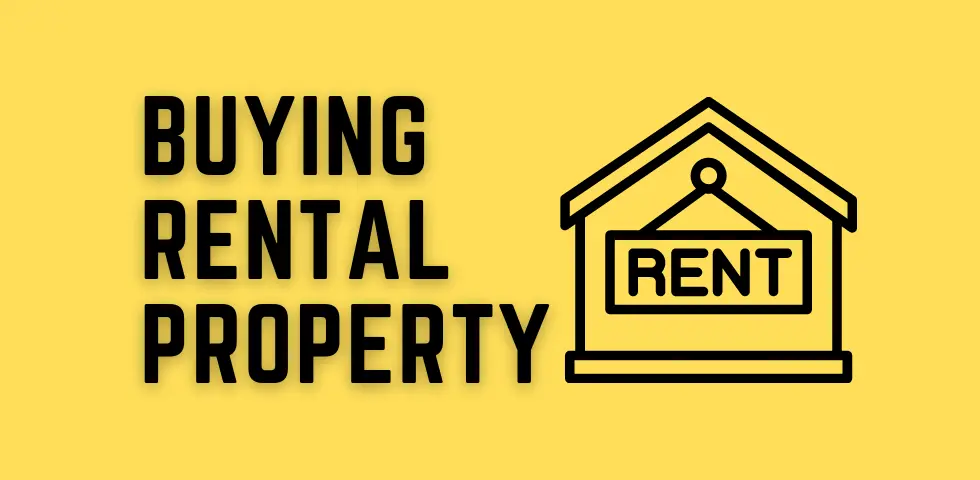Buying Rental Property
Rental properties are a great way to invest in the real estate market. They can also be an attractive option for people who don’t have a lot of capital but want to put it somewhere where it will grow over time. Even if you don’t have much money to invest upfront, you may still be able to get into the rental property game by taking on partners or using creative financing options.
There are several different types of rental properties that you might want to buy as an investor. Each one has its own strengths and weaknesses, and there are pros and cons to each type of investment. If you’re exploring your options, here is some information about some common ways to get into the world of rental properties:

Here are some tips to help you buy rental property:
- Do your research. Before you start looking for a property, it’s important to do your research and determine what type of property and location you’re interested in. You’ll also want to consider your budget and what you can realistically afford.
- Find a good real estate agent. A good real estate agent will be familiar with the area you’re interested in and can help you find the right property. They can also provide guidance on the best type of property to invest in and negotiate on your behalf.
- Get a loan pre-approval. It’s important to get a loan pre-approval before you start looking for a property. This will give you an idea of how much you can afford to spend and will make the buying process easier.
- Consider the costs of ownership. When you’re considering a property, it’s important to factor in the costs of ownership, such as mortgage payments, insurance, taxes, and repairs and maintenance. You’ll also want to factor in the potential income from rent.
- Have realistic expectations. It’s important to have realistic expectations when buying rental property. It can take time to find the right tenant and there will be times when the property is vacant. It’s important to have a reserve fund to cover these periods
Co-operative Properties
If you’re looking for an investment property, you may have considered a co-op. A co-op is a type of rental property where a group of investors buy shares in the building where they live and then rent out the individual units to tenants. Co-ops can be a great investment, but there are some things you should know before you jump in.
Here are some of the advantages of investing in a co-op:
- Co-ops tend to be less expensive than other types of rental properties.
- Co-ops offer the potential for a steadier income stream because the tenants are typically more stable.
- Co-ops offer the potential for appreciation if the property is well-maintained and located in a desirable area.
There are also some disadvantages to consider:
- Co-ops can be more difficult to finance than other types of rental properties.
- Co-ops can be more difficult to manage than other types of rental properties.
- You may have less control over the property than you would if you owned it outright.
If you’re considering investing in a co-op, be sure to do your homework and talk to a financial advisor to see if it’s the right investment for you.
Condominium Investments
Condominium investments can be a great way to get started in the real estate market. With prices and interest rates at all-time lows, now is a great time to buy a condominium. Not only are condominiums generally more affordable than single-family homes, but they also offer many other benefits.
For one, condominiums are often located in prime locations near shopping, dining, and entertainment. This makes them a great option for those who want to live in an urban area but don’t want to deal with the hassle of maintaining a home. Additionally, condominiums offer amenities that are not typically found in single-family homes, such as swimming pools, gyms, and concierge services.
Another advantage of investing in a condominium is that they are easier to finance than single-family homes. This is because lenders see condominiums as less of a risk since there are multiple units in the building and the association is responsible for the common areas. This can make it easier to get approved for a loan and can also lead to lower interest rates.
If you’re thinking about investing in real estate, condominiums are a great option to consider. With their many benefits, condominiums offer a great way to get started in the real estate market.
Network Marketing
One of the big draws of network marketing is the chance to own your own business, which could include owning rental properties.
People who are interested in real estate investment often start out with network marketing, where they recruit others to sell the same products or services that they are selling.
However, these programs are often more focused on recruiting others to work for you rather than actually owning the rental property yourself.
And while they can be a legitimate way to make money, they can also be very risky and dangerous.
Like any other investment, you need to be careful to avoid scams and make sure you do your due diligence before investing in any program.
Real Estate Investment Trust (REIT)
Real Estate Investment Trust is a company that owns, operates or finances income-producing real estate.
A REIT is a company that owns, and in most cases, operates income-producing real estate.
REITs are organized as business trusts or corporations.
The primary difference between the two structures is that business trusts do not pay corporate income taxes, while corporations do.
REITs invest in a variety of property types including office buildings, apartments, warehouses, retail centers, hotels and healthcare facilities.
While most REITs are publicly traded on major exchanges, some are privately held.
Publicly traded REITs offer investors several benefits including liquidity, transparency and diversification.
Liquidity refers to the ability to buy and sell shares of a REIT on an exchange without having to first find a buyer or seller willing to transact directly with you.
Transparency means that all material information about a REIT must be disclosed publicly so that all investors have equal access to information about the investment.
Diversification refers to the ability to own a small piece of many different real estate properties without incurring the cost and risk of owning them outright.
The downside of investing in REITs is that they are subject to the same risks as any other real estate investment including changes in local economies, interest rates and competition.
In addition, REITs may be less liquid than other investments and their share prices may be more volatile.
Real Estate Development Company Investment
There are many benefits to investing in a real estate development company. Real estate development companies are usually well-funded and have a proven track record of success. They also have access to a wide variety of resources, including land, financing, and construction expertise.
Investing in a real estate development company can provide you with the potential for high returns. Development companies typically focus on a specific geographic market and have a deep understanding of the local market conditions. This allows them to identify and capitalize on opportunities that other investors may miss.
Another benefit of investing in a real estate development company is that you can generally expect a higher level of management and oversight than you would if you were investing in a individual property. Development companies typically have a team of professionals who are experienced in all aspects of the development process, from acquiring land to obtaining financing to overseeing construction. This can provide you with peace of mind knowing that your investment is in good hands.
If you are looking for an investment that has the potential for high returns and is managed by a team of professionals, then investing in a real estate development company may be right for you.
Traditional Property Investment
If you are interested in buying a single rental property and managing it yourself, you have lots of options.
You can buy a single-family home, build a new building or even purchase an existing multi-family property.
Depending on the type of property and your knowledge and experience, buying a single-family home may be the easiest type of property to manage.
A single-family home won’t require any special license or special skills and can easily be handled as a side job while you are working another job.
Depending on the type of property you choose, you may be able to get financing through a traditional bank loan.
However, if you can’t get a loan or would prefer not to use a loan, there are other options available to real estate investors who don’t have a lot of cash on hand.
Conclusion
Rental properties come in many different forms, each with its own advantages and disadvantages. However, before you select a particular property type, you need to ensure that it is compliant with local laws. You need to make sure that your property type is allowed in your area and that it meets any zoning requirements. If you are interested in investing in rental properties, you need to do your research. The type of property that will be best for your situation will depend on several factors, including your budget, your experience and your goals for the investment.
Buying Rental Property FAQs
What are the benefits of buying a rental property?
There are many benefits to buying a rental property, including the potential for long-term appreciation, monthly cash flow, and the ability to build equity. Also, if you own a rental property, you can diversify your portfolio and protect yourself from inflation.
What are the risks of buying a rental property?
The risks of buying a rental property include the potential for a vacancy, the need for repairs and maintenance, and the possibility of bad tenants. Additionally, there is always the risk that the value of your property could go down.
How do I choose a good location for my rental property?
When choosing a location for your rental property, you should consider factors such as the local job market, the quality of schools, and the crime rate. Additionally, you’ll want to make sure that there is a strong demand for rentals in the area.
How do I finance a rental property?
There are several ways to finance a rental property, including traditional mortgages, home equity loans, and private loans. You’ll want to compare interest rates and terms to find the best option for you.
How do I find good tenants for my rental property?
There are a few things you can do to find good tenants for your rental property, including screening applicants carefully, running credit checks
Also Read:
